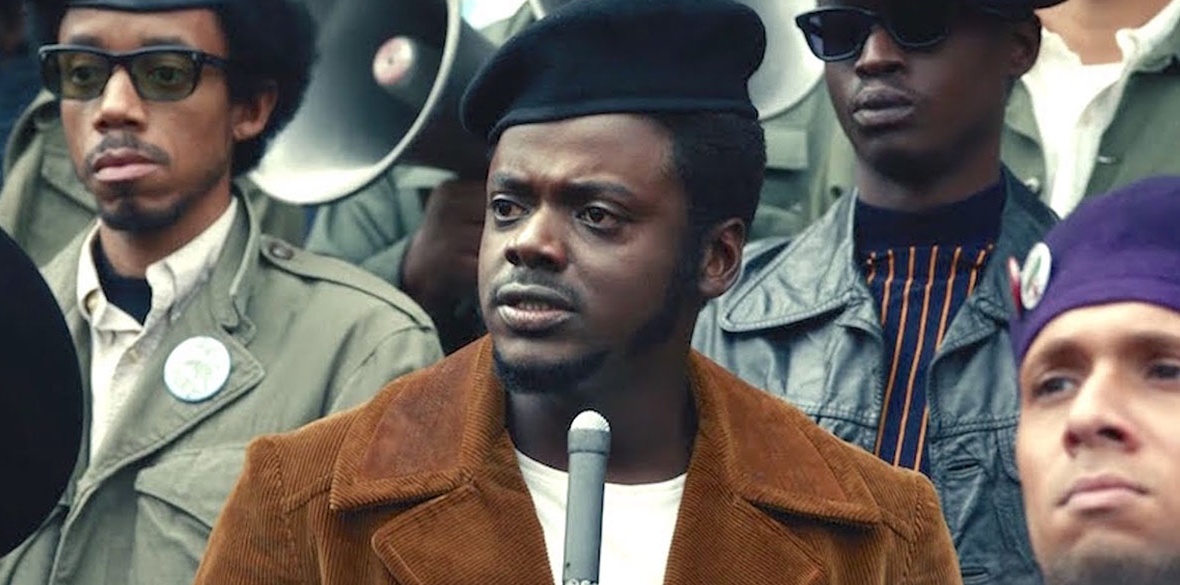This is the last article you can read this month
You can read more article this month
You can read more articles this month
Sorry your limit is up for this month
Reset on:
Please help support the Morning Star by subscribing here
LAST summer, as in many parts of the world, there was an upsurge in activism against racial oppression in the US. The recent increase in police killings of black people such as George Floyd and Breonna Taylor was answered by the militancy of those who have simply had too much.
Black Lives Matter has ushered in a new era of political activism from scores of ordinary young black people who have became involved in campaigns against police racism, brutality and abuse, with protests changing the consciousness of people across racial and national barriers.
Thus the film Judas and the Black Messiah, directed by Shaka King from a screenplay by Shaka King and Will Berson, which shows how significant that was in the late 1960s and 1970s in the US, is a timely release.
It starts with the backdrop of the assassinations of Malcolm X and Dr Martin Luther King Jr at a time when the main ideological leader of the Black Panther Party (BPP), Dr Huey P Newton, was in prison.
The BPP, as many readers may know, was one of the most notable political formations to come out of the US. It was a movement of black militants who realised that political change could not come from presidents or Congress. It would require a revolution.
The common experience of racism was, they believed, tied up in the basic exploitative and oppressive nature of capitalism itself. Inspired by Mao Zedong and basing themselves on an understanding of self-reliant black militancy, the BPP developed an uncompromising revolutionary Marxist-Leninist political line.
The film’s title references the concern of the FBI under J Edgar Hoover (Martin Sheen) that a “Black Messiah” would be able to unite black people in a revolutionary way and it shows the true story of black FBI informant Bill O’Neal (LaKeith Stanfield) being tasked with getting close to the charismatic Fred Hampton (Daniel Kaluuya), who became the Illinois Chairman of the BPP.
The film shows Hampton as pursuing a uniquely articulate and revolutionary socialist line that involved oppressed people of every colour. The oppressed had a common, twinned enemy, he declared, with both capitalist and police upholding capitalism.
According to Hampton, the capitalist comes in every colour and, under his direction, the BPP reached out to build ties with the Patriots, predominantly lumpen whites, and the Young Lords, mostly Puerto Ricans.
There’s a striking scene in which the Panthers enter a Patriot meeting with a Confederate flag hung at the front of the meeting hall. Against the protests of some of his own cadres, Hampton walks to the front of the room and argues that the “rednecks” assembled there and the Panthers in the back of the hall are all oppressed by the same enemy.
The BPP were often known for their creative application of the Second Amendment, in the form of armed patrols, but one of the other strategies that typified them was their Maoist-inspired “serve-the-people” initiatives such as free breakfasts and medical clinics for the community.
In a world in which children were going to school hungry and poor communities couldn’t afford medical care, that revolutionary approach was well received. It was that universality, and the ability to articulate a transformative revolutionary line that included reactionary whites with lumpen blacks and workers in one anti-capitalist message that made Fred Hampton a direct threat.
Toward the end of the film, the police murder him brutally as he sleeps in his Chicago apartment in 1969. He was only 21 years old.
Some reviewers have alleged that Hampton’s communist message is soft-pedalled, yet he quotes or displays illustrations of Karl Marx, Mao and Che Guevara — he’s a black communist revolutionary portrayed positively, unusual for Hollywood.
More pertinently, other critics are concerned that the interaction between Hampton and the informant O’Neal is overplayed — and there are certainly other ways to tell the story that would not have featured so prominent a role for the agent.
A positive is that new groupings inspired by the original BPP have developed in the US, including the New Afrikan Black Panther Party and the Panther Solidarity Organisation.
Both include sections for different communities of black, brown and white Panthers and Fred Hampton Jr himself is working with various Panther clubs and organisations.
This is an edited version of a review that first appeared in People’s World. Video available on Amazon Prime.











